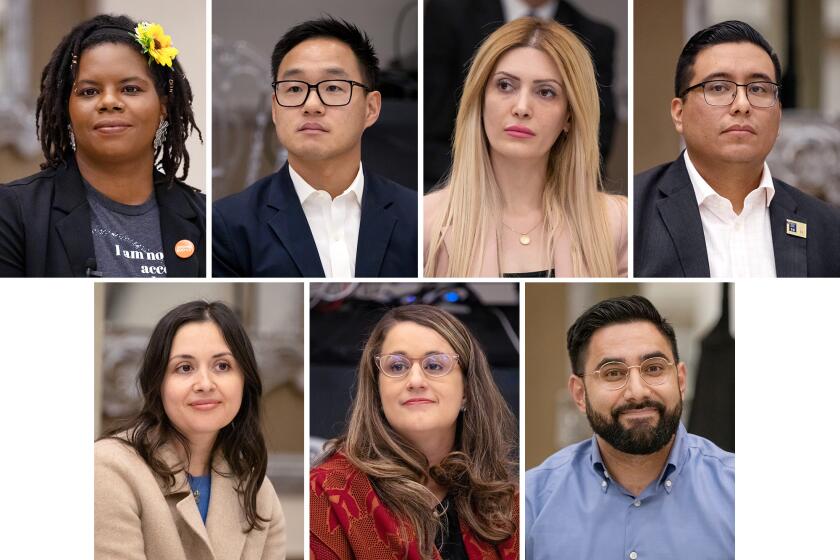Column: Richard Alarcon is fine with his political legacy — but L.A.’s latest scandals irk him
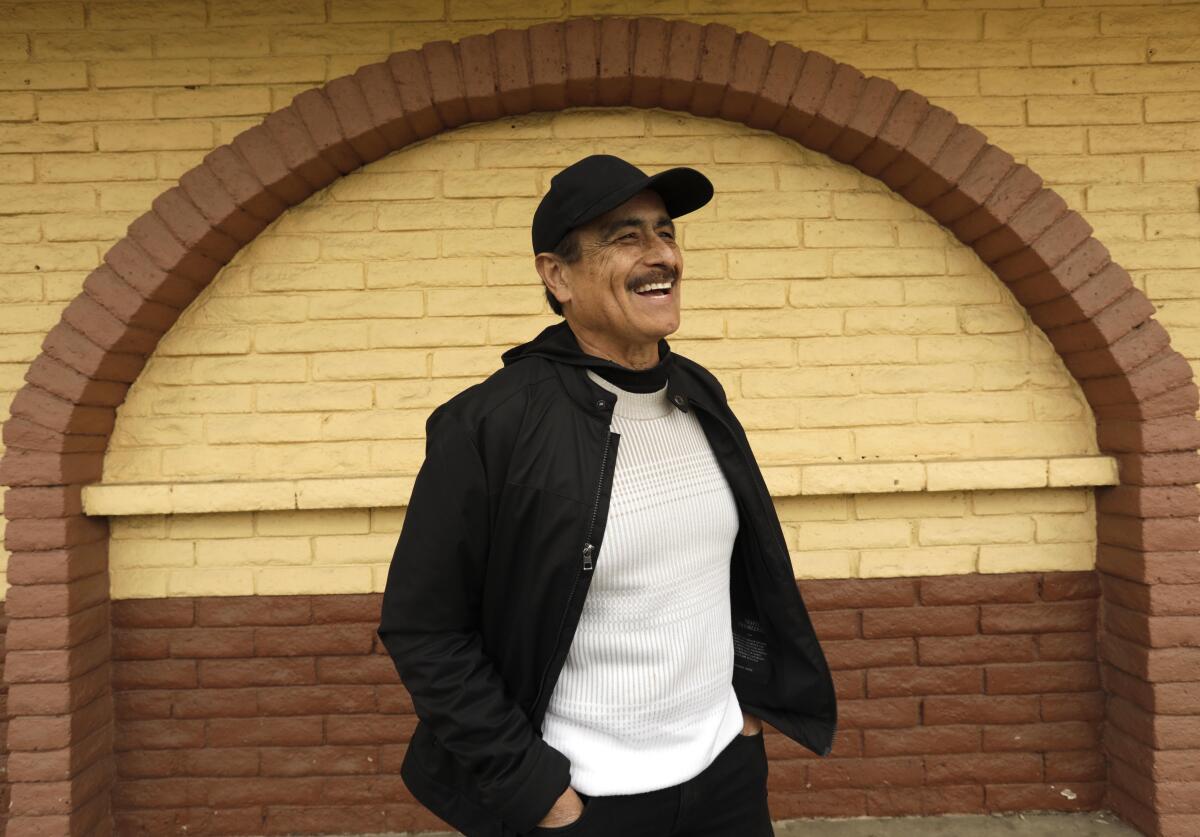
- Share via
Black hat. Black pants. Black jacket. Black hoodie. Gray sneakers … white sweater?
When I greeted Richard Alarcon last week outside Lenchita’s in Pacoima, I wasn’t sure if he was in a witness protection program or getting ready for a DJ gig.
Maybe both?
The former L.A. power broker lives in an apartment in Chatsworth and works as a real-estate agent, a consultant and a van driver taking children to medical appointments. It’s a life far removed from when he ushered in a new era of representation by becoming the first Latino to represent the San Fernando Valley on the L.A. City Council in 1993, then the first Latino state senator from the area in 1998.
The legacy of his trailblazing efforts: Latino power in the Valley stretches from the Los Angeles Unified School District Board of Education, where Kelly Gonez of North Hollywood served as president from 2020 to 2022, to Capitol Hill, where Pacoima native Alex Padilla is the first Latino to represent California as a U.S. senator.
That all ended in 2010, when a grand jury indicted Alarcon and his then-wife on charges of voter fraud. L.A. County prosecutors alleged that the two lied about living in a beat-up Panorama City house, when their primary residence was a nicer home in Sun Valley, outside the council district Alarcon represented.
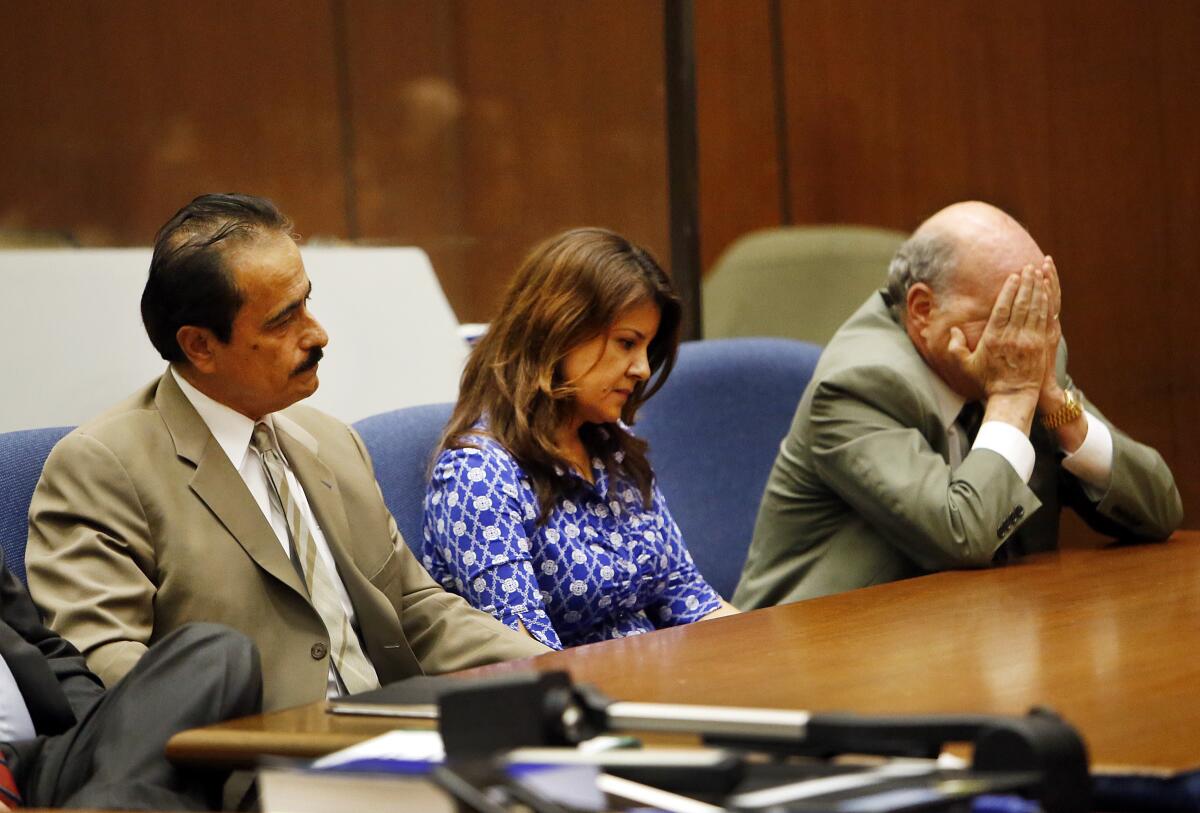
Alarcon, a Valley native, maintained that they weren’t living in the Panorama City house because they were remodeling it. A jury in 2014 found them each guilty, and Alarcon spent 51 days under house arrest before an appeals court overturned the conviction. In 2019, then-Dist. Atty. Jackie Lacey announced that she wouldn’t refile the case, and Alarcon slunk into obscurity.
Yet Alarcon was all smiles when we met up: The following day was his daughter’s quinceañera, and he had just gone shopping.
“I got a million ties, but not a gold one,” Alarcon said as he showed me a photo of her on his phone. “I don’t wear ties anymore.”
I told him he looked young for someone approaching 70. Alarcon laughed.
“Oh, I’m old,” he replied. “I feel it.”
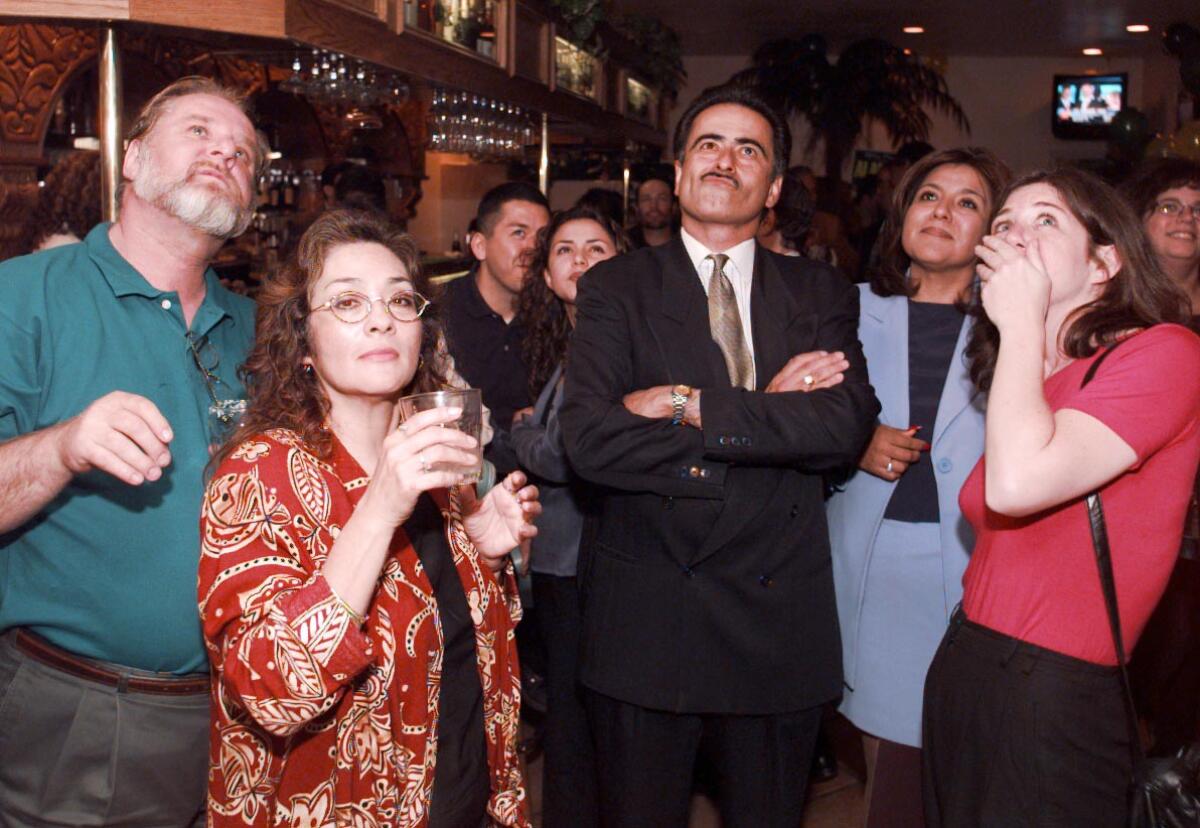
Alarcon reached out to me a couple of weeks ago to take issue with my columna lumping him with disgraced Eastside politicos. I offered to hear him out and also to ask his thoughts about city politics at a time when his residency scandal seems like a hubristic error by comparison.
The day before we met, a jury had convicted political giant Mark Ridley-Thomas on charges of federal bribery, conspiracy and fraud involving votes he cast as an L.A. County supervisor in favor of USC after the university brought on his son as a student and professor.
Earlier this year, former Councilmember Jose Huizar pleaded guilty in his corruption case, about a year after former Councilmember Mitchell Englander finished a federal prison sentence for his own corruption scandal.
Those fiascoes were overtaken in the public eye by Alarcon’s worker-turned-enemy, L.A. City Council President Nury Martinez. She resigned last October in the wake of a leaked recording that caught her spewing nasty remarks about Black people, Oaxacans and political opponents. A special election for her replacement is happening Tuesday, but turnout is expected to be dismally low, in part because too many constituents have lost faith in politicians.
Marisa Alcaraz, Rose Grigoryan, Imelda Padilla, Marco Santana, Antoinette Scully, Douglas Sierra and Isaac Kim are the candidates for L.A. City Council election to replace Nury Martinez in Council District 6.
There was so much to talk about during our one-hour dinner that Alarcon barely touched his chile verde or sipped on his medium-size horchata. He was calm and soft-spoken, with a good laugh. He’s confident that history will judge him kindly.
“People should Google me and see what I did, once they get through all the crap,” Alarcon said.
He maintains that the case against him and his then-wife was politically motivated, although he declined to go on the record about why. I told him it was foolish that he let a residency issue ruin a career that otherwise saw no big scandals — certainly nothing on the level of Ridley-Thomas, Huizar and Englander. Or even Martinez.
“People knew: Don’t come and offer me something that’s illegal,” he said. “I have pride about having that kind of record — and then this [conviction]?” He threw his hands up in the air.
“But you know what? I didn’t always feel this way — I mean, it takes time to go through the process — but eventually, I came to a place where I realized, ‘You did a lot of good things.’”
I moved on to Ridley-Thomas’ conviction.
“Very sad,” Alarcon replied of his former council colleague. “He was a very good friend, and he did a lot of great things, and I know what it’s like to be in his position.”
Did he think the charges were overblown, like many of Ridley-Thomas’ supporters have asserted?
“I have to admit, I was troubled by the donation,” he replied, referring to a $100,000 contribution to a nonprofit run by Sebastian Ridley-Thomas. Prosecutors claimed that the elder Ridley-Thomas’ campaign committee funneled the money through USC.
“But everything else I thought was par for the course,” he continued, “because anybody representing that area encompassing USC would have provided support to USC — anybody. So he was just doing things for USC that any politician would have done.”
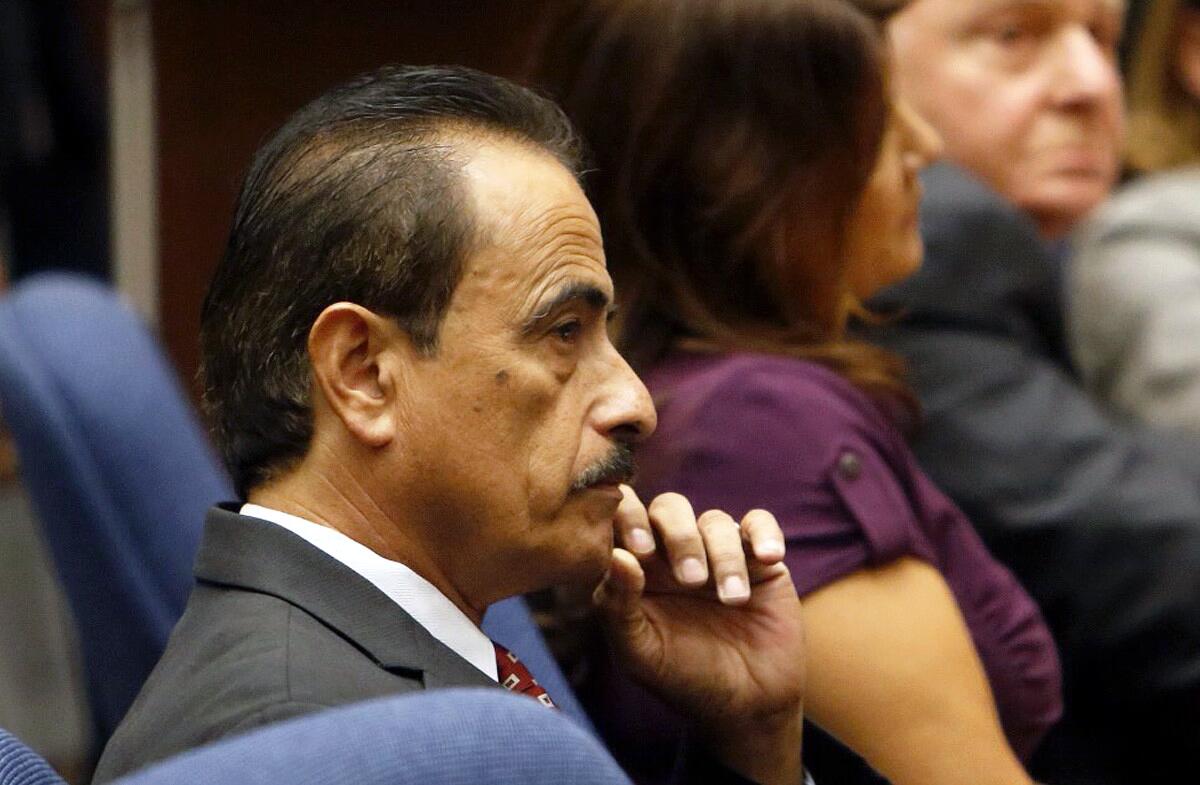
Alarcon, who was an aide to L.A. Mayor Tom Bradley before his first stint on the City Council, nevertheless said that “greed” now governs L.A. politics like nothing he’s ever seen, adding, “Each time you look at it, there’s different motivations.”
That’s when he brought up Martinez, who worked under him for a decade. “She was very quick to anger. That was her personality. So I wasn’t shocked” at the tenor of her remarks, he said.
But he was “saddened that there was racism,” which he claimed Martinez had never revealed around him — probably because he has an Afro-Latina granddaughter.
“Which would show that she’s sharp enough,” he continued. “But why would she think that Kevin and Gil would put up with that? That was also disappointing.”
“Kevin and Gil,” of course, are Kevin de León and Gil Cedillo, who served alongside Alarcon in Sacramento and were council members when they were in the room with Martinez, making pendejo remarks of their own while saying nothing to curb her.
“They’re very good friends of mine. Honestly, if somebody had said [racist remarks in front of] me when I was in the room, I would have told them to shut up,” Alarcon said.
I asked about the District 6 special election. Alarcon is supporting Marisa Alcaraz, his former deputy. But the lack of experience common to the seven candidates — none has held elected office — worries him.
“People don’t realize the politicians don’t have control over their jobs,” he said. “L.A.’s bureaucracy is tough. You have to finagle. You have to cajole. You have to outflank them to get them to do what you think needs to be done.”
He hopes that whoever wins District 6, along with the new progressive generation of L.A. politicians like Councilmembers Eunisses Hernandez and Hugo Soto-Martinez, “learn some of the lessons” of what greed can do to a political career and their constituents and “avoid those situations.”
That includes his daughter, Andrea Alarcon, who last year won a seat on the Palmdale City Council. It’s an unlikely comeback for the former president of L.A.’s Board of Public Works, who resigned in 2013 after leaving her then-11-year-old daughter alone at City Hall while she partied with friends nearby.
“I’m living vicariously through her,” Alarcon said of his daughter. He didn’t work much on her campaign, other than to offer the following advice: “I explained to her, ‘You know you’re going to get hit with all the stuff that’s going to come at you.’ And she said of course she knew that. And I said, ‘So how are you going to overcome it?’”
I had chewed my chile rellenos to nubs. I had two more questions for Alarcon.
Should De León heed the call of political leaders and activists to resign, after his embarrassing role in the racist tape scandal?
“The simple answer would be, ‘Yes, you should resign.’ But the more difficult question is, ‘What would you do in this position?’ I don’t know what I would do,” Alarcon said.
Um, OK.
He described De León as a “good person” who isn’t racist, although De León should’ve “spoken out” against Martinez during their conversation. He advised De León to file a claim against Jason Reedy, the activist whose heated altercation with the council member at a holiday toy giveaway ended with De León shoving him into a table.
I scoffed and moved on to my finale: What lessons can Angelenos take from Alarcon’s life, given that he seems to be at peace with it?
“That might be a bit of an exaggeration,” he said with a laugh.
He told me about a gift his mother gave him at his Cal State Northridge graduation. It was a letter his sixth-grade teacher had written to her, saying her son would be a “failure in life” because he was too disruptive.
“And I looked at my mom, and I said, ‘Why didn’t you show me this letter?’ She said, ‘Because I never stopped believing in you.’ ... I think that too many people give up on people when they make a mistake too soon.”
So, did L.A. give up on you, Richard?
“It’s like anything else. They like you before; they don’t like you now. I don’t think they abandoned me. It’s just that there was a new generation coming up. I served for 20 years. That’s more than most.”
We got up, paid for our respective dinners and took off into the evening. I made sure to pass by the site of the Panorama City house where Alarcon’s political fortunes sank, just a few minutes from Lenchita’s. It’s now a gated collection of homes developed by his former wife.
A political legacy, thrown away for a subdivision. May the Valley’s next generation of Latino politicians be better than this.
More to Read
Sign up for Essential California
The most important California stories and recommendations in your inbox every morning.
You may occasionally receive promotional content from the Los Angeles Times.
